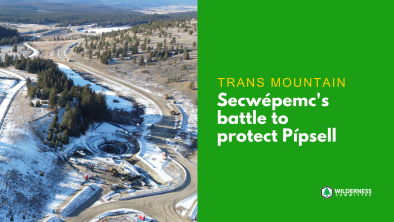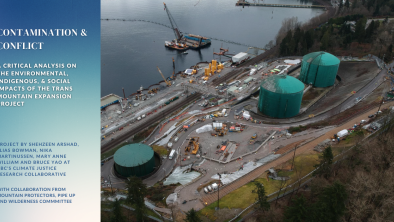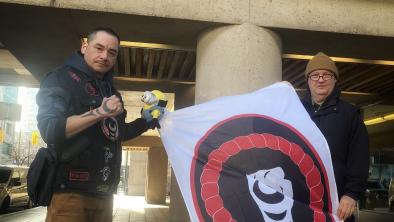Quake rattles pipeline
Petroleum News
Largest quake on BC coast since 1949 fuels concern about pipeline, tankers
Haida Gwaii (formerly the Queen Charlotte Islands) was hit by a 7.7-magnitude earthquake on Oct. 27, the strongest jolt to hit British Columbia in 63 years.
No serious damage to buildings. No personal injuries. Not the Big One that experts say is bound to happen on the North American West Coast.
But enough ammunition for opponents to fire at plans for pipelines to deliver oil sands bitumen to tanker terminals at Vancouver and Kitimat.
“I’m sure Enbridge and Kinder Morgan were, like many of us, thinking about the connection between earthquakes, tsunamis and the dangers of transporting bitumen through our coastal waters,” said Ben West, a campaigner for the Wilderness Committee.
“This should serve as yet another reminder that these pipeline and tanker projects represent a very serious threat.”
It was another chance for others to drive home their argument that severe gale conditions in the Queen Charlotte Sound, Dixon Entrance and Hecate Strait between the deepwater port at Kitimat and Haida Gwaii would pose a serious threat to the 250 very large crude carriers that would carry crude from the Northern Gateway project.
Five conditions for premier
B.C. Premier Christy Clark could use the earthquake to strengthen her argument for five conditions she says must be met in order for Northern Gateway to go ahead — dominated by environmental protection, First Nations involvement and a larger share of the revenue for the B.C. government.
Clark continued her efforts to prod the Canadian and Alberta governments and antagonize Enbridge.
In an interview with the Globe and Mail, she said that any moves by the federal government to give a green light to Northern Gateway over B.C.’s objections would ignite a national political crisis, reiterating that the pipeline will proceed only if it has a “social license” from her government.
Clark again invited Prime Minister Stephen Harper and Alberta Premier Alison Redford to meet with her to deal with B.C.’s concerns, notably how to derive greater economic benefits for the province — an invitation Redford was quick to spurn on grounds that Clark is making the same arguments.
She warned that the Harper government could override provincial opposition and unilaterally revoke provincial statutes — a step not taken since 1943 when the Canadian government acted to ensure national support for Second World War initiatives.
Clark said that even if the federal government believes Northern Gateway is in the national interest she doubts it will ram through decisions on the pipeline.
Softer stand
However, Clark softened some of her earlier stands, saying she does believe heavy crude can be safely transported to the Pacific Coast if the proper safeguards are in place.
“I’m not taking the position that it can never happen, because it’s happening now,” she said.
But Clark sidestepped outlining what she means by a “fair share” of revenues for B.C. from Northern Gateway because no one is yet certain what they are.
However, Enbridge said the Clark government has turned down the company’s requests for a meeting to discuss revenues and the potential benefits of the pipeline.
Al Monaco, chief executive officer of the company, said B.C. is “quite legitimately” making demands for First Nations involvement and environmental safety, while Enbridge would be “glad to sit at the table” to discuss economic benefits.
“But at this point we haven’t seen that opportunity,” he said.


